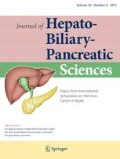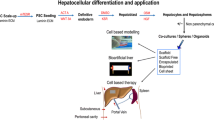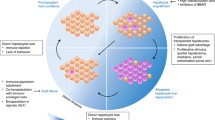Abstract
Hepatocyte transplantation represents an alternative strategy for treating liver disease. Liver repopulation following acute liver failure could, potentially, eliminate the requirement for orthotopic liver transplantation. Similarly, the ability to repopulate the liver with disease-resistant hepatocytes offers new opportunities for correcting genetic disorders and treating patients with chronic liver disease. Recent advances concerning the fate of transplanted cells in the recipient liver, the efficacy of cell therapy in outstanding animal models of human disease, and the isolation of progenitor liver cells capable of differentiating into mature hepatocytes have renewed optimism in regard to treating people with hepatocyte transplantation. Recruitment of an increasing number of investigators to the field and the success of recent pilot studies indicate that hepatocyte transplantation will become routine clinical practice in the near future.
Similar content being viewed by others
Author information
Authors and Affiliations
Additional information
Received: July 4, 2000 / Accepted: October 12, 2000
About this article
Cite this article
Malhi, H., Gupta, S. Hepatocyte transplantation: new horizons and challenges. J Hep Bil Pancr Surg 8, 40–50 (2001). https://doi.org/10.1007/s005340170049
Issue Date:
DOI: https://doi.org/10.1007/s005340170049




